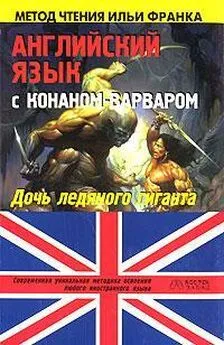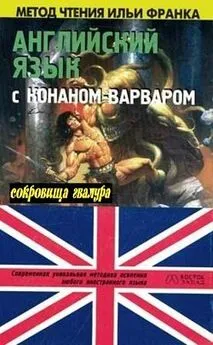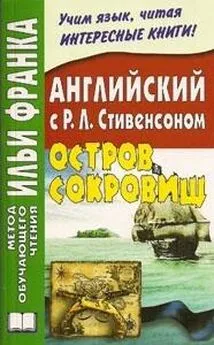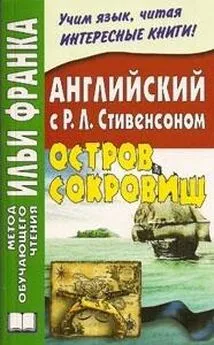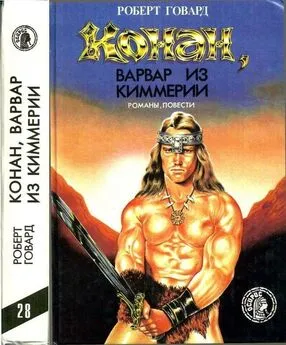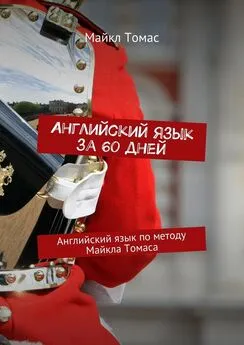Роберт Говард - Английский язык с Конаном-варваром
- Название:Английский язык с Конаном-варваром
- Автор:
- Жанр:
- Издательство:АСТ, Восток-Запад
- Год:2007
- Город:Москва
- ISBN:5-17-042032-3, 5-478-00503-7
- Рейтинг:
- Избранное:Добавить в избранное
-
Отзывы:
-
Ваша оценка:
Роберт Говард - Английский язык с Конаном-варваром краткое содержание
В книге предлагается произведения Роберта Е. Говарда, адаптированные (без упрощения текста оригинала) по методу Ильи Франка. Уникальность метода заключается в том, что запоминание слов и выражений происходит за счет их повторяемости, без заучивания и необходимости использовать словарь. Пособие способствует эффективному освоению языка, может служить дополнением к учебной программе. Предназначено для студентов, для изучающих английский язык самостоятельно, а также для всех интересующихся английской культурой.
Метод чтения Ильи Франка
Содержание:
Дочь ледяного великана
Проклятие монолита
Замок ужаса
За Черной рекой
Тени Замбулы
Английский язык с Конаном-варваром - читать онлайн бесплатно полную версию (весь текст целиком)
Интервал:
Закладка:
hold [həuld], any [ˈenɪ], capture [ˈkæpʧə]
"Conan, Zogar Sag must die, if we are to hold Conajohara. You have penetrated the unknown deeper than any other man in the fort; you know where Gwawela stands, and something of the forest trails across the river. Will you take a band of men tonight and endeavor to kill or capture him? Oh, I know it's mad. There isn't more than one chance in a thousand that any of you will come back alive. But if we don't get him, it's death for us all. You can take as many men as you wish."
"A dozen men are better for a job like that than a regiment," answered Conan (дюжина людей лучше для такой работы, чем полк, — ответил Конан). "Five hundred men couldn't fight their way to Gwawela and back, but a dozen might slip in and out again (пять сотен солдат не могли бы пробиться к Гвавеле и обратно, но дюжина, возможно, проскользнут туда и выскользнут обратно; to fight one’s way — прокладывать себе дорогу ). Let me pick my men (разреши мне самому выбрать моих людей; to pick — собирать, снимать (плоды), рвать, срывать (цветы, фрукты); выбирать, отбирать, подбирать ). I don't want any soldiers (я не хочу /каких-либо/ солдат = мне не нужны солдаты )."
job [ʤɔb], regiment [ˈreʤɪmənt], pick [pɪk]
"A dozen men are better for a job like that than a regiment," answered Conan. "Five hundred men couldn't fight their way to Gwawela and back, but a dozen might slip in and out again. Let me pick my men. I don't want any soldiers."
"Let me go!" eagerly exclaimed Balthus (позволь мне пойти! — страстно / с рвением воскликнул Балтус; eager — страстно желающий, жаждущий ). "I've hunted deer all my life on the Tauran (я охотился /на/ оленей всю мою жизнь в Тауране)." [38] Но может означать и способ действия: по-таурански.
"All right. Valannus, we'll eat at the stall where the foresters gather, and I'll pick my men (хорошо. Валаннус, мы поедим у конюшни, где собираются охотники, и я отберу моих людей). We'll start within an hour (мы выступим в течение часа), drop down the river in a boat to a point below the village (спустимся вниз по реке в лодке ниже поселка) and then steal upon it through the woods (и потом прокрадемся к нему через лес). If we live, we should be back by daybreak (если мы живем = останемся живы , /то/ мы должны вернуться к рассвету)."
hour [auə], drop [drɔp], eagerly [ˈi: ɡəlɪ]
"Let me go!" eagerly exclaimed Balthus. "I've hunted deer all my life on the Tauran."
"All right. Valannus, we'll eat at the stall where the foresters gather, and I'll pick my men. We'll start within an hour, drop down the river in a boat to a point below the village and then steal upon it through the woods. If we live, we should be back by daybreak."
3. The Crawlers in the Dark
(Ползущие [39] По теме главы я бы предложил «крадущиеся».
во тьме)
The river was a vague trace between walls of ebony (река была нечеткой линией между стенами черного цвета). The paddles that propelled the long boat (весла, которые толкали длинную лодку) creeping along in the dense shadow of the eastern bank (крадущуюся в густой тени восточного берега) dipped softly into the water (опускались бесшумно в воду), making no more noise than the beak of a heron (создавая не больше шума, чем клюв цапли). The broad shoulders of the man in front of Balthus were a blue in the dense gloom (широкие плечи мужчины перед Балтусом были синевой в густом мраке). He knew that not even the keen eyes of the man who knelt in the prow would discern anything more than a few feet ahead of them (он знал, что даже острые глаза человека, который стоял на коленях на носу судна, не различили бы чего-либо = ничего более, чем в нескольких футах впереди них = на расстоянии нескольких футов перед ними; to kneel — стоять на коленях, становиться на колени ).
Conan was feeling his way by instinct and an intensive familiarity with the river (Конан нащупывал /свой/ путь инстинктивно и /опираясь на/ глубокое знание реки).
boat [bəut], creep [kri: p], gloom [ɡlu: m]
The river was a vague trace between walls of ebony. The paddles that propelled the long boat creeping along in the dense shadow of the eastern bank dipped softly into the water, making no more noise than the beak of a heron. The broad shoulders of the man in front of Balthus were a blue in the dense gloom. He knew that not even the keen eyes of the man who knelt in the prow would discern anything more than a few feet ahead of them. Conan was feeling his way by instinct and an intensive familiarity with the river.
No one spoke (никто /не/ говорил). Balthus had had a good look at his companions in the fort before they slipped out of the stockade and down the bank into the waiting canoe (Балтус хорошо рассмотрел своих спутников в форте до того, как они выскользнули из укрепления и вниз по берегу в ожидающее каноэ; to have a look at — посмотреть на, бросить взгляд на; before — до того как, прежде чем, перед тем как ). They were of a new breed growing up in the world on the raw edge of the frontier — men whom grim necessity had taught woodcraft (они были из новой породы, растущей в мире на суровом краю границы — люди, которых суровая необходимость обучила знанию леса; craft — ремесло; ловкость, сноровка ). Aquilonians of the western provinces to a man, they had many points in common (аквилонцы из западных провинций до одного /человека/, они имели много общих черт; in common — совместно, сообща, вместе, одновременно ). They dressed alike — in buckskin boots (они одевались одинаково — в сапоги из оленьей кожи), leathern breeches and deerskin shirts (кожаные штаны и рубашки из оленьей кожи), with broad girdles that held axes and short swords (с широкими поясами, которые удерживали секиры и палаши); and they were all gaunt and scarred and hard-eyed (и они все были сухопарыми, и в шрамах, и с жестким взглядом); sinewy and taciturn (мускулистыми / жилистыми и молчаливыми).
canoe [kəˈnu: ], dress [dres], scar [skɑ:]
No one spoke. Balthus had had a good look at his companions in the fort before they slipped out of the stockade and down the bank into the waiting canoe. They were of a new breed growing up in the world on the raw edge of the frontier — men whom grim necessity had taught woodcraft. Aquilonians of the western provinces to a man, they had many points in common. They dressed alike — in buckskin boots, leathern breeches and deerskin shirts, with broad girdles that held axes and short swords; and they were all gaunt and scarred and hard-eyed; sinewy and taciturn.
They were wild men, of a sort, yet there was still a wide gulf between them and the Cimmerian (они были дикари, в некотором роде, тем не менее была еще широкая пропасть между ними и киммерийцем). They were sons of civilization, reverted to a semi-barbarism (они были сынами цивилизации, вернувшимися к полуварварству). He was a barbarian of a thousand generations of barbarians (он был варваром из тысяч поколений варваров). They had acquired stealth and craft, but he had been born to these things (они приобрели хитрость и ловкость, но = а он родился к этим вещам = с ними ). He excelled them even in lithe economy of motion (он превосходил их даже в гибкой экономности движения). They were wolves, but he was a tiger (они были волки, а он был тигр).
gulf [ɡʌlf], stealth [stelƟ], wolves [wʋlvz]
They were wild men, of a sort, yet there was still a wide gulf between them and the barbarian of a thousand generations of barbarians. They had acquired stealth and craft, but he had been born to these things. He excelled them even in lithe economy of motion. They were wolves, but he was a tiger.
Balthus admired them and their leader and felt a pulse of pride that he was admitted into their company (Балтус восхищался ими и их вожаком, и испытывал чувство гордости, что он был принят в их компанию). He was proud that his paddle made no more noise than did theirs (он гордился, что его весло производило не больше шума, чем /делали/ их /весла/). In that respect at least he was their equal (в этом отношении по крайней мере он был им ровней), though woodcraft learned in hunts on the Tauran could never equal that ground into the souls of men on the savage border (хотя знание леса, изученное = полученное на охоте в Тауране /не/ могло бы никогда сравняться с тем = знанием , вдолбленным в души людей на дикой / жестокой границе).
admire [ədˈmaɪə], ground [ɡraund], equal [ˈi: kwəl]
Balthus admired them and their leader and felt a pulse of pride that he was admitted into their company. He was proud that his paddle made no more noise than did theirs. In that respect at least he was their equal, though woodcraft learned in hunts on the Tauran could never equal that ground into the souls of men on the savage border.
Below the fort the river made a wide bend (ниже форта река образовывала широкую излучину). The lights of the outpost were quickly lost (огни аванпоста быстро пропали), but the canoe held on its way for nearly a mile (но каноэ продолжало /свой/ путь почти милю), avoiding snags and floating logs with almost uncanny precision (избегая коряг и плавающих бревен с почти сверхъестественной точностью; to hold on — продолжать ).
Читать дальшеИнтервал:
Закладка:
